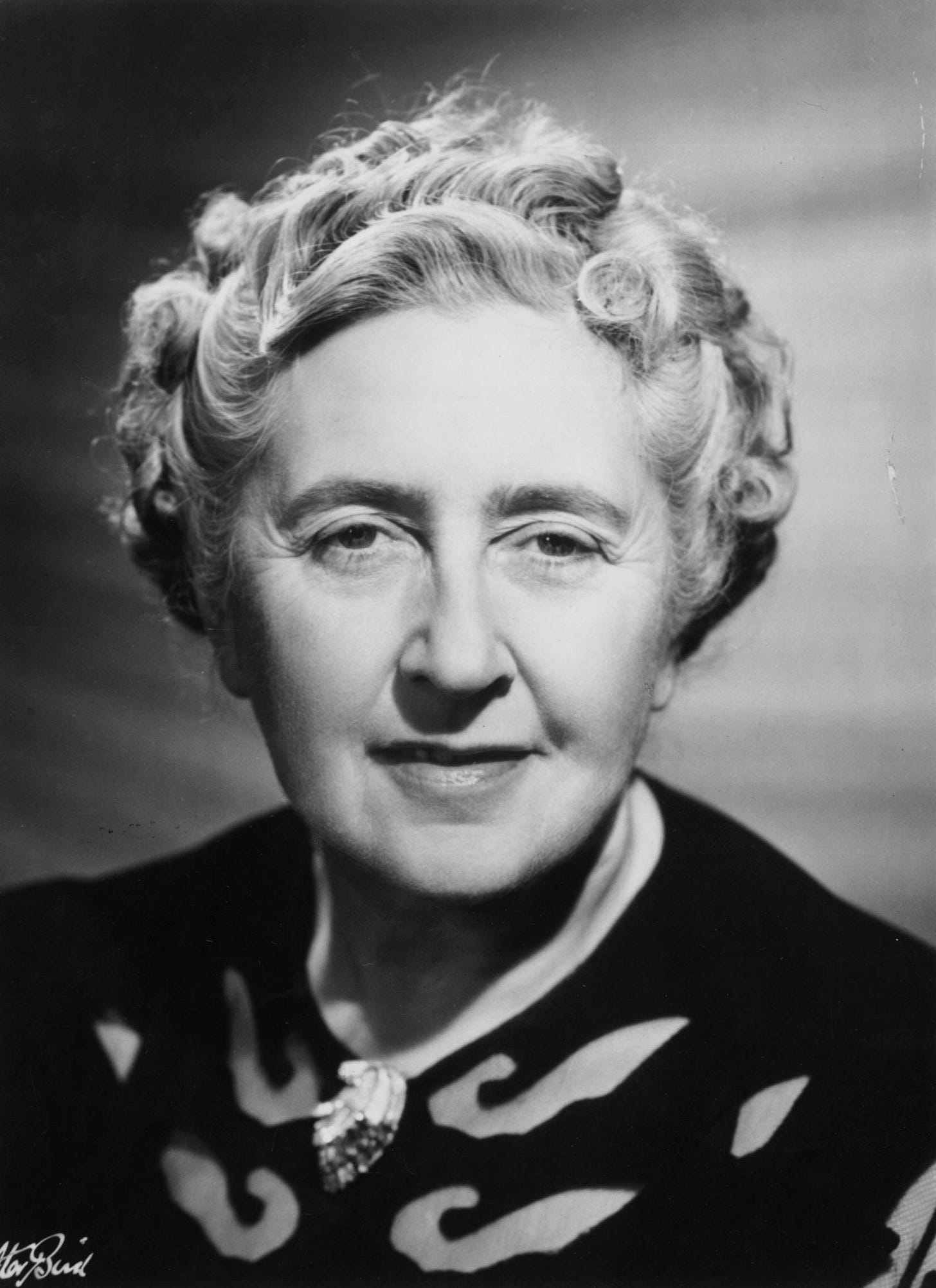How Reading Agatha Christie Helped Me Grieve my Grandmother's Death
Re-reading the many works of the "queen of mystery" has allowed me to further grieve my late grandmother.
When my grandmother passed away just over a year ago, it felt like the bottom fell out of my life. She was like a second mother to me and, given how difficult grieving has been in the time of COVID-19, I have yet to really process my loss. One thing that has proven surprisingly helpful, however, has been a retreat into the world of fiction, particularly the many mystery novels written by Dame Agatha Christie.
In the course of her long career, the woman who would become known as the Queen of Mystery published dozens of mystery novels, the most popular of which featured one of her two most notable literary creations: the fussy Belgian detective Hercule Poirot and the small-town spinster Miss Jane Marple. Poirot, with his fussy demeanor, egg-shaped head, and fixation on his “little grey cells,” has become the quintessential literary private detective, while the sharp-eyed old lady Miss Marple would influence the character Jessica Fletcher of the long-running show Murder, She Wrote.
As it turns out, Christie’s works would become a key part of my relationship with my grandmother. You see, when I was a kid I would spend many weekends at her house. In a little room beside her bedroom, she had an old wooden bookcase with elaborate glass doors, and in that case was her enormous collection of Christie novels. Many of these were at least a couple of decades old—nothing says “I’m an old paperback like a $1.99 price stamp in the lower left-hand corner—and some had been taped together in order to keep them from falling apart. Each and every one showed the unmistakable signs of frequent reading.
At some point, probably in my early teens, I decided that I’d take a look at these books to see what all of the fuss was about. After picking out which one I wanted to read, I'd curl up in the recliner in grandma’s “good” living room and, the pages illuminated by her floral-print lamp, I’d devour these mysterious adventures, and even my inability to solve the murder before either of Christie’s sleuths didn’t diminish my affection. If grandma forced me to accompany her to a family reunion (which she often did in those days), I’d almost always have a Christie novel clutched in my hands so as to avoid having to talk with relatives that I didn’t know. They’d shake their heads at me, but grandma would nod approvingly.
Of course, once I was finished with a given book, I’d have to talk about it with her. I’d always try to correct her pronunciation of Poirot’s name (rather than the correct “Air-cule”, grandma insisted on saying it “Herculee”), but it never seemed to take, and eventually it just became a part of our ritual. Given how many times that she’d read those books over the years, she knew the plots backwards and forwards, though thankfully she generally managed not to spoil it for me.
This sharing was all the more extraordinary considering that our literary tastes went in very different directions. Grandma liked books about old movie stars (I’d later pick up that habit, too), as well as historical romances. Reading Agatha Christie—and, later, watching the adaptations of the novels produced by ITV, in which Poirot was portrayed by the supremely talented British actor David Suchet—we found a way of speaking across our differences. It was a way for each of us to bring something to the table, to bond over our shared pleasure.
Eventually, reading Christie’s novels became something of an intergenerational phenomenon, since my mother was, and is, quite a fan. And, once again, our shared love of a literary text is a way for us to talk to one another in a way that sometimes evades us in our everyday lives. We might disagree about everything else—politics, changing social mores, the actions of family members, you name it—but at the very least we could agree that there was nothing quite like an Agatha Christie murder mystery.
On a recent visit to my parents, it finally hit me that, much as I’d convinced myself otherwise, I wasn’t really okay when it came to my grandmother’s passing. Her absence still haunts me, and so it was that I decided to relive our connection by re-reading Agatha Christie’s books. Though the experience isn’t quite the same these days—most of my mom’s copies are the new line of trade paperbacks released over the last decade—as I lose myself in the fanciful yet deadly world of these murderous stories, I seem to almost be able to feel grandma’s presence looking over my shoulder. I’m taken back to those idyllic days of my childhood, when I’d visit my grandparents’ rambling farm house and go to that old bookcase.
For a while, at least, grandma is back with me and, these days, that’s good enough.




